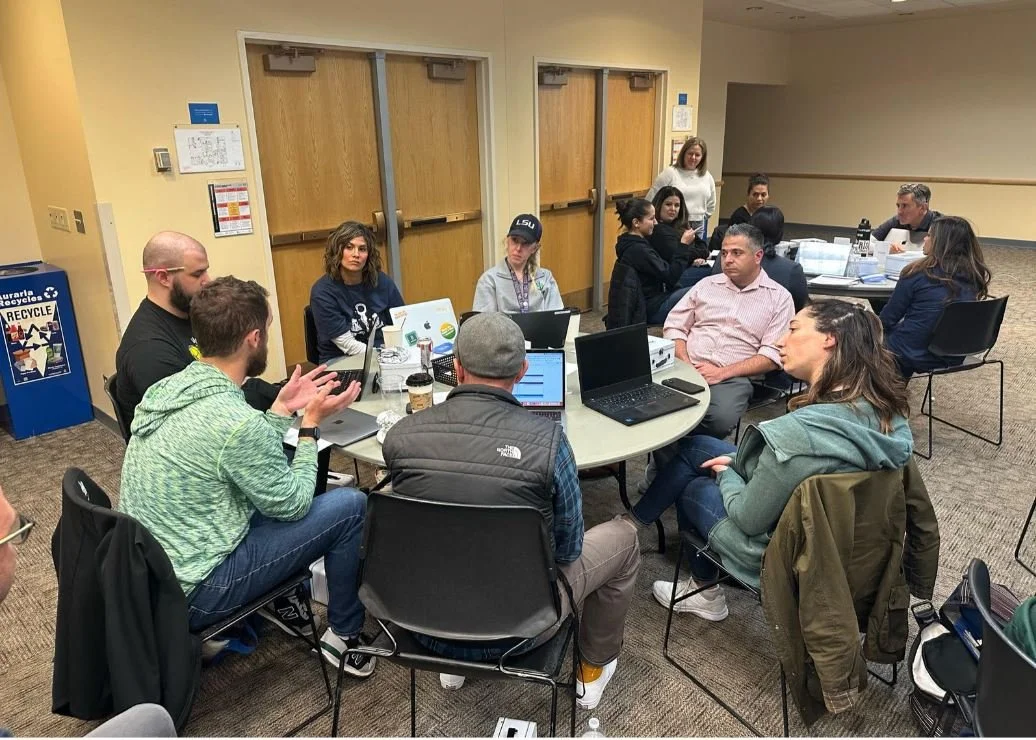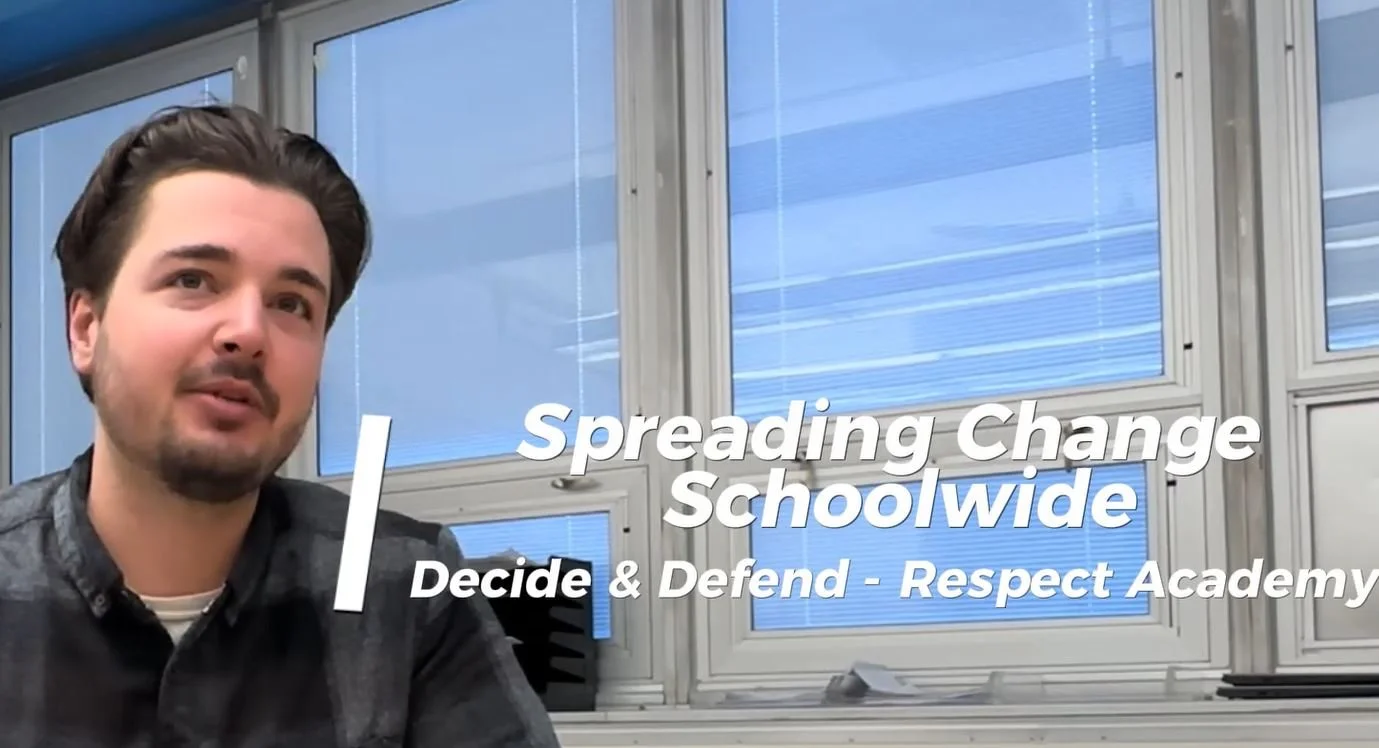College Ready On Track Network for School Improvement
Our vision is to enable educators, students, and communities, through intentional design and networked improvement, to create classrooms that prepare our students, and particularly our Black, Latino, and multilingual students, to pursue their dreams.
Upcoming Events
News & Announcements
Winter Academics Discussion Survey 23-24
In the summer of 2024, the College Ready on Track Network created a student survey based on the PMR2 survey to help us better understand our Driver Diagram and the impact of Academic Discussions in the classroom. The survey was given in the fall, and winter, of the 2023-2024 school year, and will be administered within the network once more after spring break. After the winter administration, we can see that students’ sense of belonging and mathematical confidence may be shifting within Network Classrooms. However, these changes do not provide answers but raise important questions for us to further investigate.
Winter 2024 Network Update
Our network gathered together on January 11th and February 16th to discuss what we are learning about engaging Black, Latinx, and MLL students in meaningful academic discussions. Below are the are the goals and focus areas from each of our meetings.
Centered our Black, Latinx, and MLL students throughout our conversations
Engaged in data-driven inquiry
Began to generate and consolidate knowledge about supporting meaningful academic discussions
Reciprocal Teaching at Bruce Randolph School
In this video, Bruce Randolph's Facilitation Lead, Caitlin Osugi, shares how the team has prioritized time to collaborate and learning from their students to improve their practice. Bruce Randolph students also share how Reciprocal Teaching allows them to build connections with other students while deepening their mastery of mathematics.
Using Decide & Defend Schoolwide at Respect Academy
This video story allows for an inside peak at how the staff at Respect Academy has incorporated the “Decide & Defend” protocol to get students talking in math, English, science, and social studies classes. And, how it has become engrained into data driven instruction and coaching at the school.
What are Network Schools Designing and Implementing?
Prior to generating initial change ideas, network participants conducted interviews with students, families, and teachers to better understand their communities’ educational needs and aspirations. Through this listening process, participants developed a “Theory of Improvement” aligned to what they heard in order to guide their design decisions.
FAQs
-
Networks for School Improvement are professional learning communities that unite educators from multiple schools and sometimes multiple districts to address a common problem using improvement science principles. NSIs exist throughout the country, with some (including DPS’s) receiving funding from the Bill & Melinda Gates Foundation.
-
Continuous Improvement
Continuous Improvement is defined as research that involves multiple iterative cycles of activity over extended time periods. Within the context of College Ready On Track, this means that school Design Teams are encouraged to think of their change ideas as adaptive, in that they may shift over time or as Design Teams learn about what works, what doesn’t, and under what circumstances.
Improvement Science
Improvement science is an approach to generating incremental and sustained change within school systems. Unlike traditional education reform, improvement science positions teachers and school leaders as idea generators and testers — bringing the practitioners closest to instruction into design, prototyping, and evaluation of “change ideas.”
In DPS, this means that DPS teachers and school leadership teams develop and implement small- and large-scale innovations that they believe will improve education systems within their schools.
Liberatory Design Thinking
Liberatory Design Thinking is process in which teams seek to understand the needs of their “users” – the people the seek to serve or impact – in order to develop new solutions to user challenges. In this case, College Ready On Track’s users are students, families, communities, and teachers.
Liberatory Design Thinking enables teams to challenge their own internal assumptions and view systemic challenges from multiple perspectives to identify alternative strategies and solutions that might not have previously been considered.
College Ready On Track makes use of all three of these approaches to ensure that participants center the educational needs and aspirations of Black, Latinx, and low-income students and families within all design efforts.
-
Network membership is available to any high school in Denver Public Schools. In the current year of the network there are 22 participating high schools. These schools include traditional high schools as well as those that offer alternative pathways into career and college. The current schools in the network are…
Abraham Lincoln High School
Bruce Randolph High School
Compassion Road
Contemporary Learning Academy
Denver Center for International Studies
Denver Online High School
Denver School of Innovation & Sustainable Design
Emily Griffith High School
Florence Crittenton High School
George Washington High School
John F Kennedy High School
Legacy Options High School
Montbello Career & Technical
Northeast Early College
North Engagement Center
Northfield High School
PREP Academy
Respect Academy
RF Smith STEAM Academy
Summit Academy
Vista Academy
West High School
If you are interested in joining the network, please contact us to learn how to get involved.
-
District Priority Implementation leading to a Theory of Improvement
DPS Thrives: A Strategic Road Map to the DPS Experience sets the stage for the priorities of our district. Based in continuous improvement, the road map seeks to focus acutely on two main areas—ensuring all students have access to rigorous texts and tasks and creating safe and welcoming schools. In October of 2022, teachers along with school and district leaders came together to create a theory of action. This theory of improvement outlined key drivers of instruction that would lead to student success in mathematics. This served as the basis for school teams design of improvements to be made within the classroom.
School Teams Co-Design Change Ideas to be tested in Classrooms
In December of 2022, over 100 members of the network schools came together to design six change ideas. These change ideas constitute the first round of instructional practices or strategies to be tested in classrooms. With the help of student feedback and input on design, these change ideas will continue to be adapted in an effort to find solutions that lead to increased math proficiency and student agency within the classroom.
-
“Participating in the cohort has taken down some of the previous feeling or practice of schools competing against each other and instead working towards common goals in collaboration.” – Mia Martinez-Lopez, Principal, West Early College
“The tools I have gained by working in the NIC have helped me think and move more strategically and not become overwhelmed by my desires to make sweeping changes in an effort to impact equity. I am hopeful that this will lead to sustainable change in our school and in my practices as a leader.” – Ethan Emery, Assistant Principal, Denver Center for 21st Century Learning (DC-21)
“This has become some of the most exciting and impactful work that is part of my daily job.” – Sarah Peterson, Senior Team Lead, Bruce Randolph School







